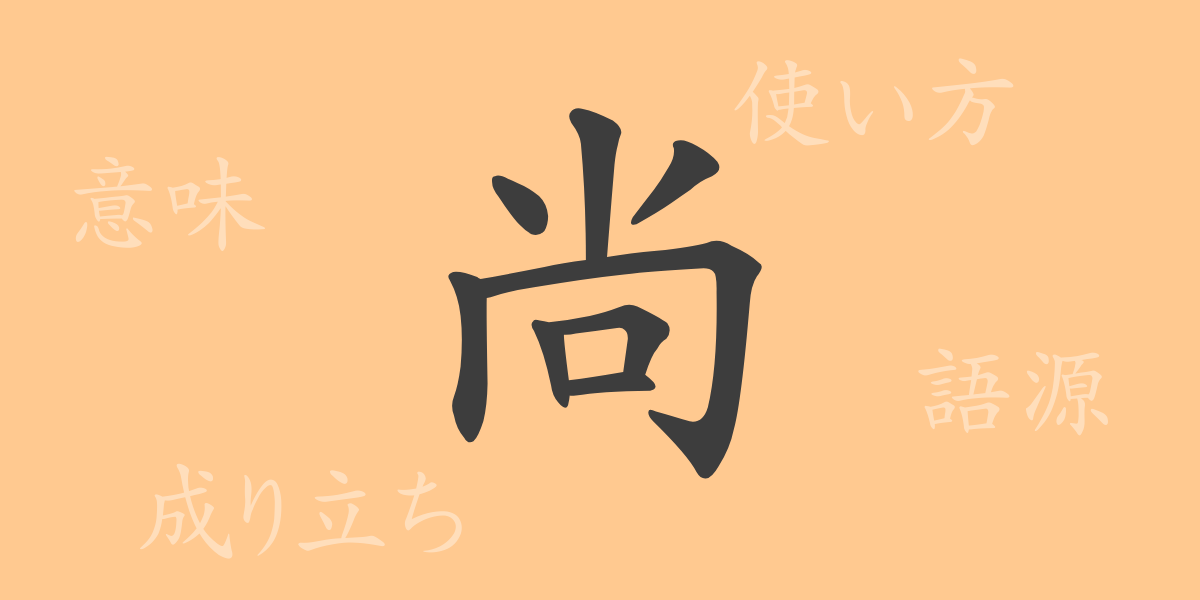The beauty of the Japanese language is reflected in its characters, each with its own history and depth. This article shines a spotlight on the kanji ‘尚’ (ショウ), exploring its origins, meanings, usages, and the phrases and idioms derived from it. Understanding each kanji is a step towards appreciating the richness of the Japanese language.
Origins of 尚 (ショウ)
The kanji ‘尚’ originated in ancient China. Its form evolved from pictographs representing a high platform or throne, symbolizing reverence and value placed on elevated things. Over time, it came to denote respect and priority, used to appraise something as ‘higher’ or ‘superior’.
Meaning and Usage of 尚 (ショウ)
‘尚’ conveys respect or esteem and is often used to indicate a preference or priority. It is commonly seen in phrases like ‘尚更 (なおさら)’ meaning ‘even more’ or ‘furthermore,’ emphasizing enhancement or increase. It can also appear in ‘尚早 (しょうそう)’ meaning ‘premature,’ and in business contexts, ‘尚可 (しょうか)’ represents a preferable or better option.
Readings, Stroke Count, and Radical of 尚 (ショウ)
‘尚’ is a kanji appreciated for its straightforward yet potent structure.
- Readings: The On’yomi (Sino-Japanese reading) is ‘ショウ’, with no common Kun’yomi (native Japanese readings).
- Stroke Count: Consists of 8 strokes.
- Radical: The radical is ‘小’ (しょうへん).
Idioms and Phrases Using 尚 (ショウ) and Their Meanings
There are many idioms and phrases that include ‘尚’. For example, ‘尚友 (しょうゆう)’ means ‘close friend,’ and ‘尚書 (しょうしょ)’ refers to a high-ranking official, often used in historical contexts. ‘尚武 (しょうぶ)’ meaning ‘to honor martial arts’ reflects the spirit of bushido and is emblematic of the samurai ethos. Using these phrases can lend depth and dignity to speech.
Conclusion on 尚 (ショウ)
The kanji ‘尚’ vividly embodies concepts of respect and priority from its form to its application in idioms. Widely used from business documents to everyday conversation and even in literary texts, this kanji exemplifies the richness of Japanese expression. Proper integration of this information in SEO can enhance visibility on search engines, effectively conveying the allure of ‘尚’ to a broader audience.

























